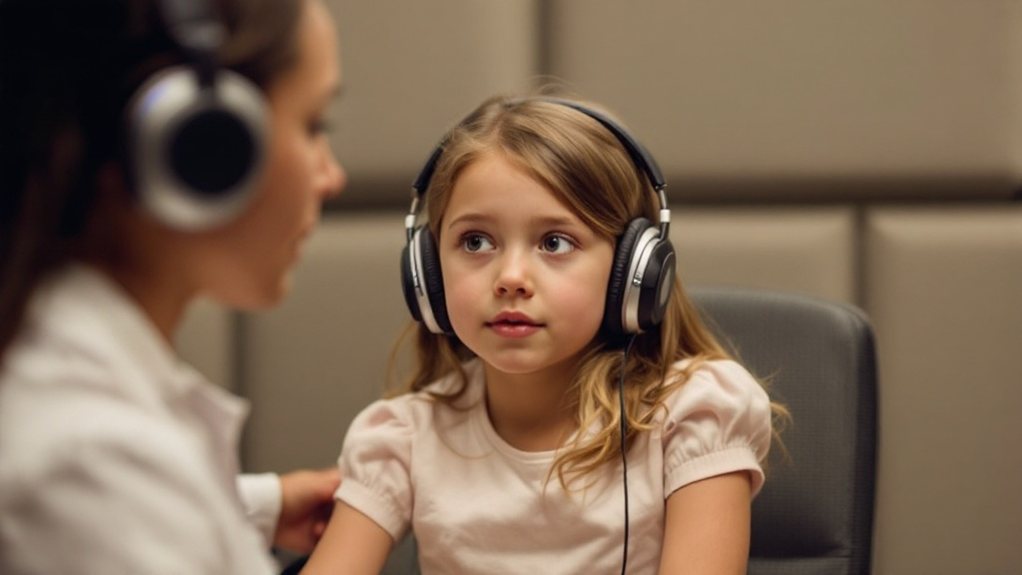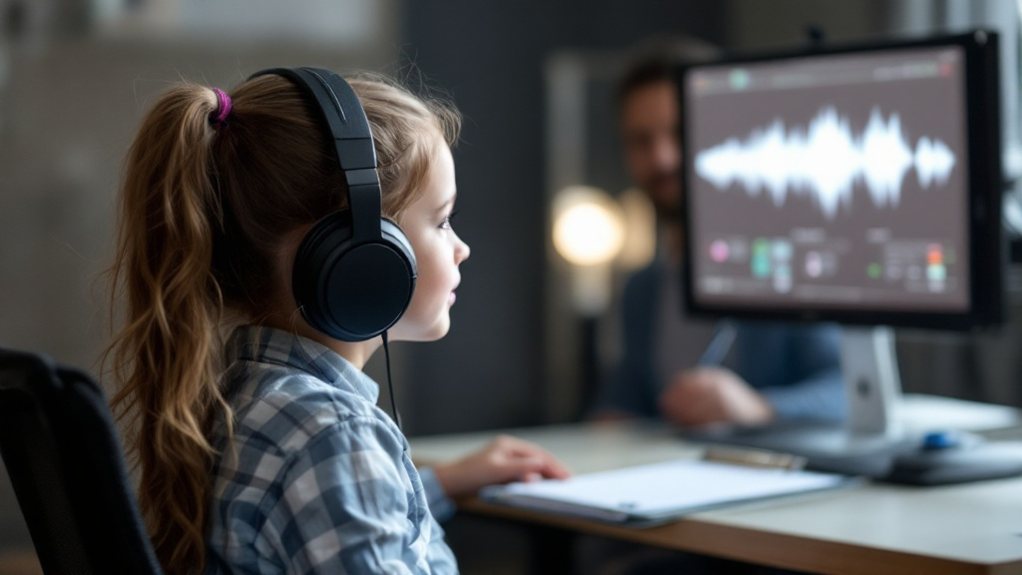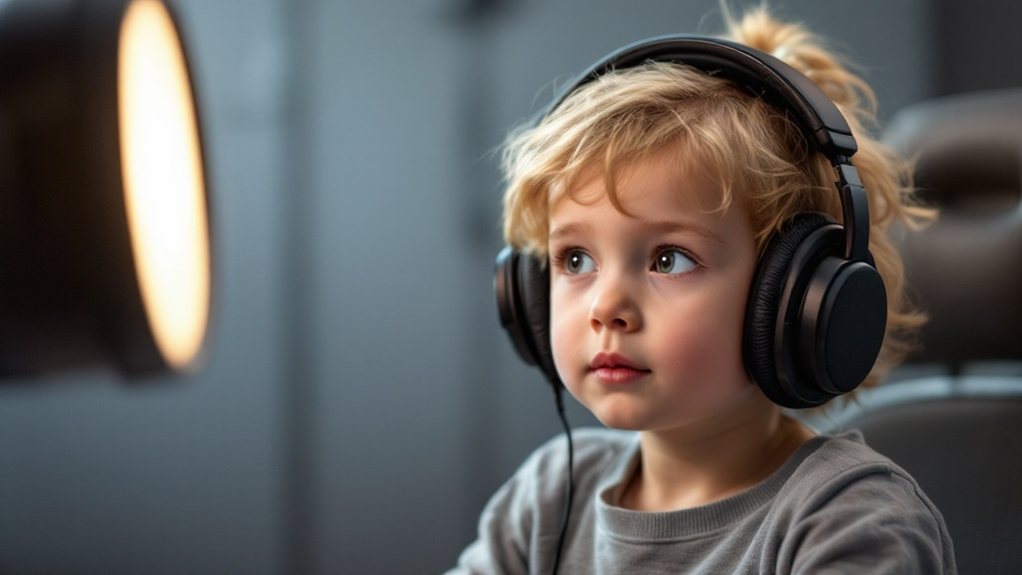Are you looking for Children Hearing Test Hillcrest?
Ready to take the first step towards better hearing?
Let’s talk!
Connect with us today! Fill out the contact form below to schedule your personalised hearing consultation at All Things Hearing. Our expert team is committed to guiding you on your journey to improved hearing health. Don't wait to enhance your quality of life. Reach out now – we're here to listen and help!
Follow us:
Our main hearing clinic is located in Greenbank and our visiting sites are located in Daisy Hill, Jimboomba, Parkinson, and Wishart.
At All Things Hearing, we provide hearing services in the area, and if you suspect your child is having trouble hearing, you’ll want to get their hearing tested. It’s easier than you think, with most tests being non-invasive and quick. You’ll find out if your child can hear sounds at different frequencies. If they can’t, it may indicate a hearing problem.
You’ll learn what to expect during the test, and how to identify signs of hearing issues. As you move forward, you’ll discover more about the importance of early detection and how it can impact your child’s development and future.
Types of Hearing Tests
Considering the various methods used to assess hearing, you’ll find that there are several types of hearing tests for children. You’ll come across pure-tone tests, which check how well you can hear sounds at different frequencies. It’s a common test that’s used to assess hearing in kids. You might also have an otoacoustic emissions test, which isn’t painful and doesn’t require you to respond.
When you get a hearing test, it’s usually done in a soundproof room. You’ll wear headphones and be asked to listen to sounds. The sounds will vary in volume and frequency, and you’ll need to indicate when you hear them. If you can’t hear the sounds, it may indicate a hearing problem. You don’t have to worry, though – these tests aren’t invasive and are designed to help identify any issues. They can help you get the treatment you need to improve your hearing. Overall, hearing tests are important for kids, and they can help you get the care you need.
Causes of Hearing Loss
Now that you know how hearing tests work, you’re probably wondering what can cause hearing loss in kids. You might be surprised to learn that there are several factors that can contribute to hearing loss in children. Genetics can play a role, and you might be concerned if there’s a family history of hearing loss. Additionally, certain medical conditions, such as ear infections or meningitis, can also cause hearing loss.
You should also be aware that exposure to loud noises can damage your child’s hearing, and it’s not just limited to extremely loud sounds. Prolonged exposure to sounds like music or machinery can also cause hearing loss. As a parent, it’s essential to take steps to protect your child’s hearing, such as keeping the volume low and having their hearing tested regularly. By understanding the causes of hearing loss, you can take proactive measures to prevent it and ensure your child’s hearing health.
Signs of Hearing Problems

As you monitor your child’s hearing health, it’s crucial that you’re able to recognize the signs of hearing problems, which can be subtle, especially in young children. You may notice that your child doesn’t respond to their name or other familiar sounds, or they might not be able to locate the source of a sound. In older children, you might notice that they’re having trouble following instructions or keeping up with conversations.
You should also pay attention to your child’s speech and language development. If they’re not meeting milestones, such as saying their first words or putting together simple sentences, it could be a sign of a hearing problem. Additionally, if your child is watching TV with the volume turned up too high or having trouble hearing you when you’re in the same room, it’s worth having their hearing checked. It’s essential that you’re aware of these signs, so you can take action and get your child the help they need.
How Tests Are Conducted
When you take your child in for a hearing test, they’ll likely undergo a series of evaluations to assess their hearing health. You’ll be asked to provide some information about your child’s medical history and any symptoms you’ve noticed. The audiologist will then use this info to determine which tests are needed.
The tests themselves are usually pretty straightforward. Your child will wear headphones or earphones, and they’ll be asked to respond to different sounds. They might be asked to identify words or sounds, or to point to their ear when they hear something. You’ll be allowed to stay with your child during the test, and you can help reassure them if they get anxious. The audiologist will also use specialized equipment, like an otoscope, to visualize your child’s ears and check for any blockages. It’s a relatively quick process, and you’ll get the results soon after it’s finished.
Age Related Hearing Issues

Several age-related hearing issues can affect children, and it’s essential to identify them early on. You’ll want to be aware of the potential problems that can arise at different stages of a child’s development. For instance, newborns are at risk of congenital hearing loss, which can be caused by genetic factors or complications during birth. As children grow, they may be more susceptible to ear infections, which can lead to temporary hearing loss.
You should also be aware that some age-related hearing issues can be caused by environmental factors, such as exposure to loud noises. If you suspect that your child is having trouble hearing, it’s crucial that you don’t delay in seeking medical attention. You can help your child by being proactive and monitoring their hearing closely. By doing so, you can help identify any potential issues and get your child the treatment they need to prevent long-term damage. It’s up to you to take an active role in protecting your child’s hearing health.
Testing and Evaluation Process
During the initial stages of identifying potential hearing issues in your child, you’ll likely undergo a comprehensive testing and evaluation process. You’ll meet with an audiologist or hearing specialist who’ll assess your child’s hearing and overall health. They’ll ask you questions about your child’s medical history, developmental progress, and any concerns you may have.
You’ll be asked to provide information about your child’s birth and medical history, including any potential risk factors for hearing loss. The audiologist will then perform a series of tests to assess your child’s hearing. These tests may include pure-tone audiometry, tympanometry, or otoacoustic emission testing. You’ll be present during the testing process, and the audiologist will explain each test and what to expect. The evaluation process may take some time, but it’s essential to get an accurate diagnosis and develop an effective treatment plan if your child has a hearing issue. The results will help determine the best course of action for your child’s hearing health.
Importance of Early Detection

Many children don’t receive a hearing test until they’re old enough to communicate their difficulties, but you can take proactive steps to ensure your child’s hearing health. You’ll want to identify any potential issues early on, as untreated hearing loss can significantly impact their development. It’s crucial to recognize that hearing plays a vital role in your child’s language and social skills development.
You should prioritize early detection, as it can greatly affect your child’s ability to learn and communicate effectively. If you suspect your child is having trouble hearing, you shouldn’t hesitate to consult a professional. They’ll be able to assess your child’s hearing and provide guidance on the best course of action. By taking initiative, you can help prevent potential developmental delays and ensure your child receives the support they need. Early detection is key to addressing hearing-related issues, and it’s essential you take an active role in monitoring your child’s hearing health.
Disclaimer
The content on our site is purely for education and should not be seen as an endorsement or recommendation of any treatments or products without a thorough hearing assessment and evaluation. Before starting any treatment, users should get advice from a professional and be fully aware of any potential side effects or risks related to the procedures. Any products we mention cannot be purchased by the public without first consulting a hearing health expert.
